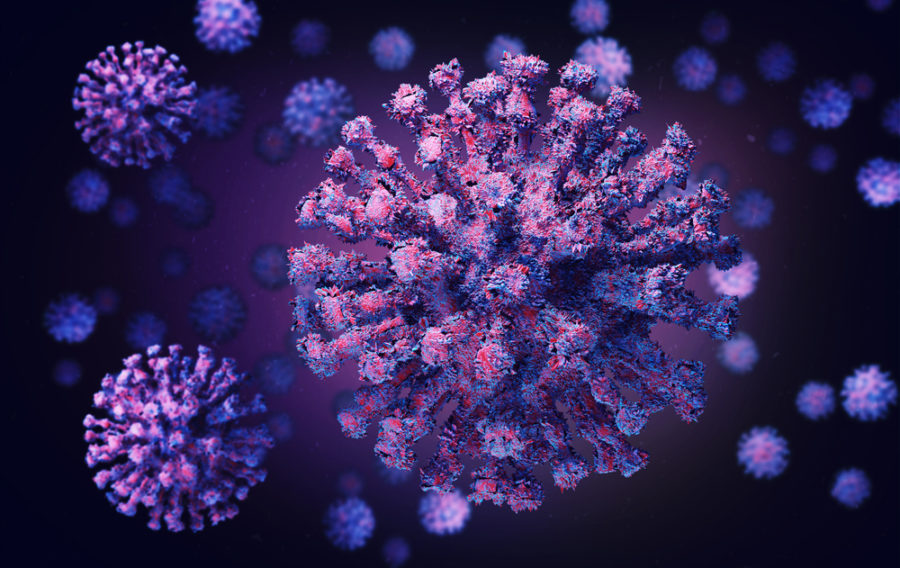
Writing for Defence Online, Martin Cronin, CEO, Patriot One, examines how technology can play a significant role in the fight against the Covid-19 pandemic.
For decades, the nature of global safety has been evolving. From security threats like large-scale terrorist attacks to lone actor stabbings, new challenges are constantly arising. The threat detection industry, in turn, endeavours to respond to these challenges with defensive strategies of equal strength. The Covid-19 pandemic is no different.
Although the assailant may be invisible, it has wrought much destruction. Stemming the spread of Covid-19 is now a priority for every government, business and individual around the world. Now, more than ever, governments must work hand in hand with technology providers that have the expertise to tackle these new, invisible global threats.
Part of this is utilising existing technology to build solutions that can help manage the spread of the virus. The incorporation of Artificial Intelligence (AI) into existing technology that monitors environments, such as security cameras, is one of the solutions being explored.
The frontline threat
Data from the Office of National Statistics (ONS) shows that, to date, the highest death rate from Covid-19 is among male security guards, with 45.7 deaths per 100,000. While there are likely a number of factors that contribute to this statistic it raises the question: What can be done to keep these people safe at work?
Traditionally, the key purpose of security systems has been to detect and intercept physical and cyber threats before an attack is launched, including the detection of visible and hidden weapons, identification of abnormal behaviour and data security breaches. While this will, of course, remain a primary focus, security systems must now adapt to defend against these new viral and contagious threats. Specifically, against microbiological threats such as Covid-19.
Technology has already dramatically improved the effectiveness of today’s physical security solutions. Systems with Artificial Intelligence (AI) and machine learning functionality at their core can be deployed to efficiently roll out newly developed algorithms, so new threats can start to be detected immediately.
AI in action
AI and machine learning technologies can be applied to stem the spread of Covid-19. Using AI-powered video analytic software, common thermal and digital video cameras can be enhanced into remote video health screening tools, with capabilities including:
- Elevated body temperature screening: Individuals are scanned by thermal cameras with AI functionality for elevated body temperature when entering a building. In the case of a temperature outside a nominal range, an alert is transmitted to onsite security for further action. The benefits of this would be seen especially in locations such as care homes and offices, or indeed any venue that needed to quickly screen individuals or a queue of people entering a facility in a controlled checkpoint environment.
- Face mask compliance detection: Security personnel are alerted when people are not complying with face mask requirements through the use of AI and digital camera networks. Although regulation around face masks currently differs across the globe, it is widely accepted that masks assist in preventing the spread of viral pathogens. This technology would be particularly useful in environments such as hospitals, retail facilities and schools, where members of the public gather in an enclosed space.
- Social distancing and large gatherings: Data captured by digital cameras, using AI algorithms, can detect how close people are to one another. If they are not complying with government guidelines, an automated message could be activated to remind them to distance. Similarly, they can detect large groups of people who may be interacting in close proximity and therefore increasing the possibility of multiple infections, prompting an automated response or police intervention if required.
Computer vision technology has existed for over a decade. Now, with the power of real-time AI software that is integrated with current video management systems, threats can be identified for immediate response. This is done in a non-intrusive way that does not disrupt people’s day to day lives or invade their personal space and privacy.
Security personnel still have an important role to play, but it is a role that is less laden with risk. These security staff should receive training to support them to work alongside these new AI-driven technologies, including guidance on policies, procedures and how to respond to threats. From a safe distance, they will be able to tell instantly where threats lie and where action needs to be taken. As well as keeping themselves safe, they are empowered with the information needed to protect others from harm.
Critically, it is a tool that could help to slow the spread of Covid-19. Early detection of viruses and contagions at outbreak and epidemic stages could help control infection rates, stopping them before they morph into global pandemics and endemics. This will lessen the burden on healthcare services and ensure individuals with symptoms are made aware.
From conception to implementation
To be most effective, these types of AI-driven technologies must be embedded into national security policies and become an integral pillar of security training programmes. Security experts should work with decision makers to arm them with a comprehensive understanding of how to best implement and integrate these technologies.
It doesn’t stop there. As these new security technologies continue to develop, so will their capabilities. In time, we should expect to see the emergence of security systems that can identify people exhibiting physical signs of illness, such as coughing and sneezing and can also contact trace infected individuals.
Looking to the future
From healthcare, business and government, to education, hospitality and retail, these types of security solutions will be key to enabling society and the economy to safely return to some form of functioning normality over the coming months and years.
As we look ahead to the future of public security in a world impacted by Covid-19, it’s clear that new technologies, specifically AI, have a role to play in making our communities safe. But technology alone can only go so far.
To ensure the safety of public and private spaces, we need people, new technology platforms, policies and procedures to work in harmony on a global scale. Learnings and successes must be shared. Technological innovations deployed rapidly and at scale.
Collaboration has proved integral to winning many battles in the past. Only with collaboration will we see the full potential of smart, innovative solutions that will transform security systems to defend against the current threat and future risks we will face.
If you would like to join our community and read more articles like this then please click here.







